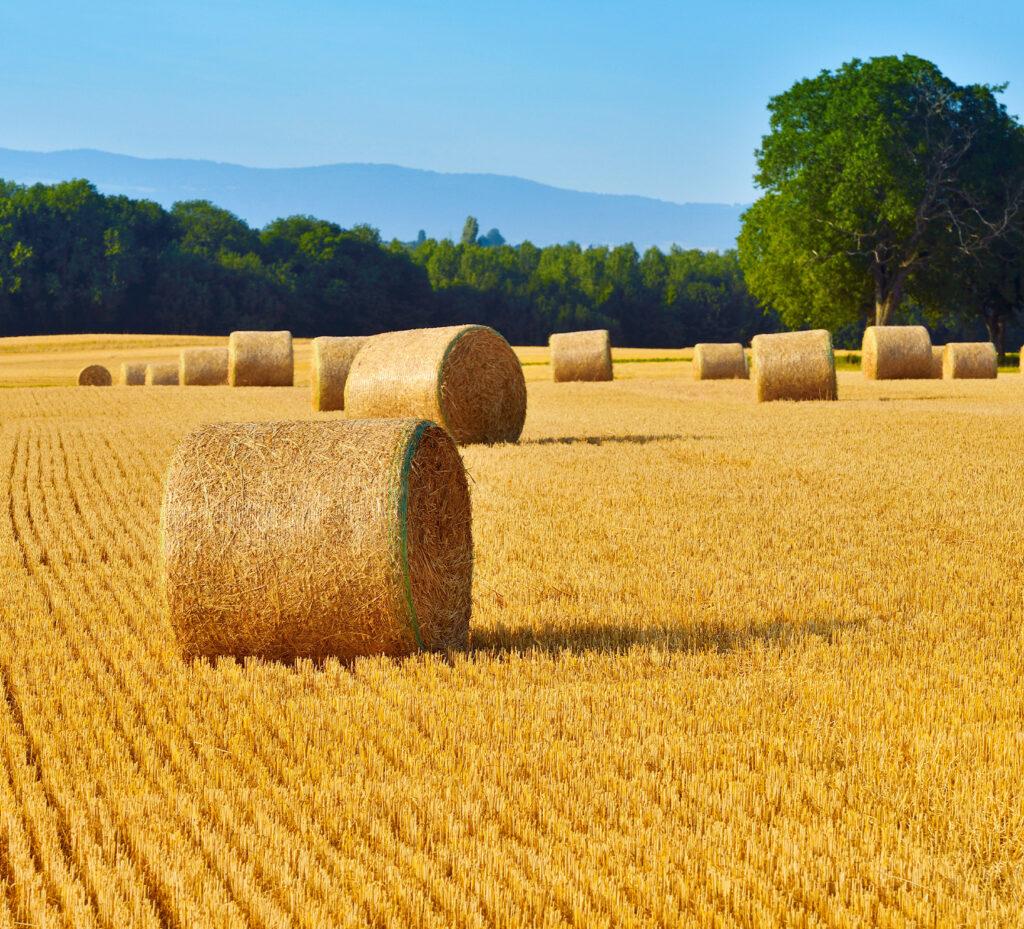Farming our way to a future more resilient to climate change
Sustainable Bites: Food and Our Future What can we do to help make our food systems more sustainable? UBC researchers share small steps that can make a big collective impact.
Farmers do more than just produce food—they can help nurture local ecosystems. But farming also needs to become more resilient to changing weather patterns and other effects of climate change. Dr. Sean Smukler, Director of the Centre for Sustainable Food Systems at UBC Farm, explains how researchers are tackling these challenges.

Did you know?
- 10 per cent of Canada’s contribution to global greenhouse gas emissions comes from agriculture food production.
- Canada is one of the world’s largest food exporters.
What does it mean to say farmers are stewards of the global landscape as the climate changes?
“We rely on farmers for many essential ecosystem services: clean water, clean air and the regulation of our climate,” explains Dr. Smukler. “They also provide habitat for much of global biodiversity. Recognizing that farmers are doing more than just producing food is critical.”
He notes that farmers aren’t directly compensated for being good stewards of the earth. “Right now, we’re paying for our food at the grocery store or a restaurant, but we’re not necessarily paying for all these other services that the farmers provide us,” he says. Programs that pay farmers and ranchers for ecosystems services can help to fill that gap.
What can farmers do to become more resilient to climate change?
At UBC Farm, researchers from Dr. Smukler’s Faculty of Land and Food Systems lab are developing and testing strategies to help farmers adapt to the effects of climate change, such as rapidly changing weather patterns. They are also helping farmers reduce their impact on the climate; for example, by reducing greenhouse gas emissions and sequestering carbon in the soil.
“We focus a lot on building soil,” says Dr. Smukler, “making sure that that soil is healthy and creating an efficient, effective farming system that’s beneficial to the farmer, the next generation and to the environment.”

How does buying local food affect our future security?
Consumers need to make the connection between how local farming can help cultivate a regional food system, says Dr. Smukler. “When consumers purchase food from places like California, we have very little control over how that food is produced, or the supports that go to those farmers,” he explains. “Building the local food system is not only good for our local economy, it also builds our local food security and resilience of the system as a whole.”
While imported food may be less expensive, and producing food while stewarding the landscape may be more costly, the benefits of buying local go beyond what we eat. Dr. Smukler acknowledges, however, that higher-priced food impacts decisions of both consumers and farmers.
That’s where policymaking comes in. “We really need to make sure that we are providing those incentives to farmers, that we are sharing in the cost of making sure that they’re stewarding the land in a way that’s beneficial for everybody.”
This article was published on March 8, 2024. Feel free to share the video and republish the text of this article, but please follow our guidelines for attribution and seek any necessary permissions before doing so. Please note that images are not included in this blanket licence.
More stories
- 5 things you need to know about measles

- How writing can help heal trauma from Residential Schools

- Staying socially connected can help maintain healthy eating with age, especially for older women

- How Canada can turn tariff tensions into a global affordable housing alliance

- Four actions to support a sustainable democracy

- Why AI can’t take over creative writing
